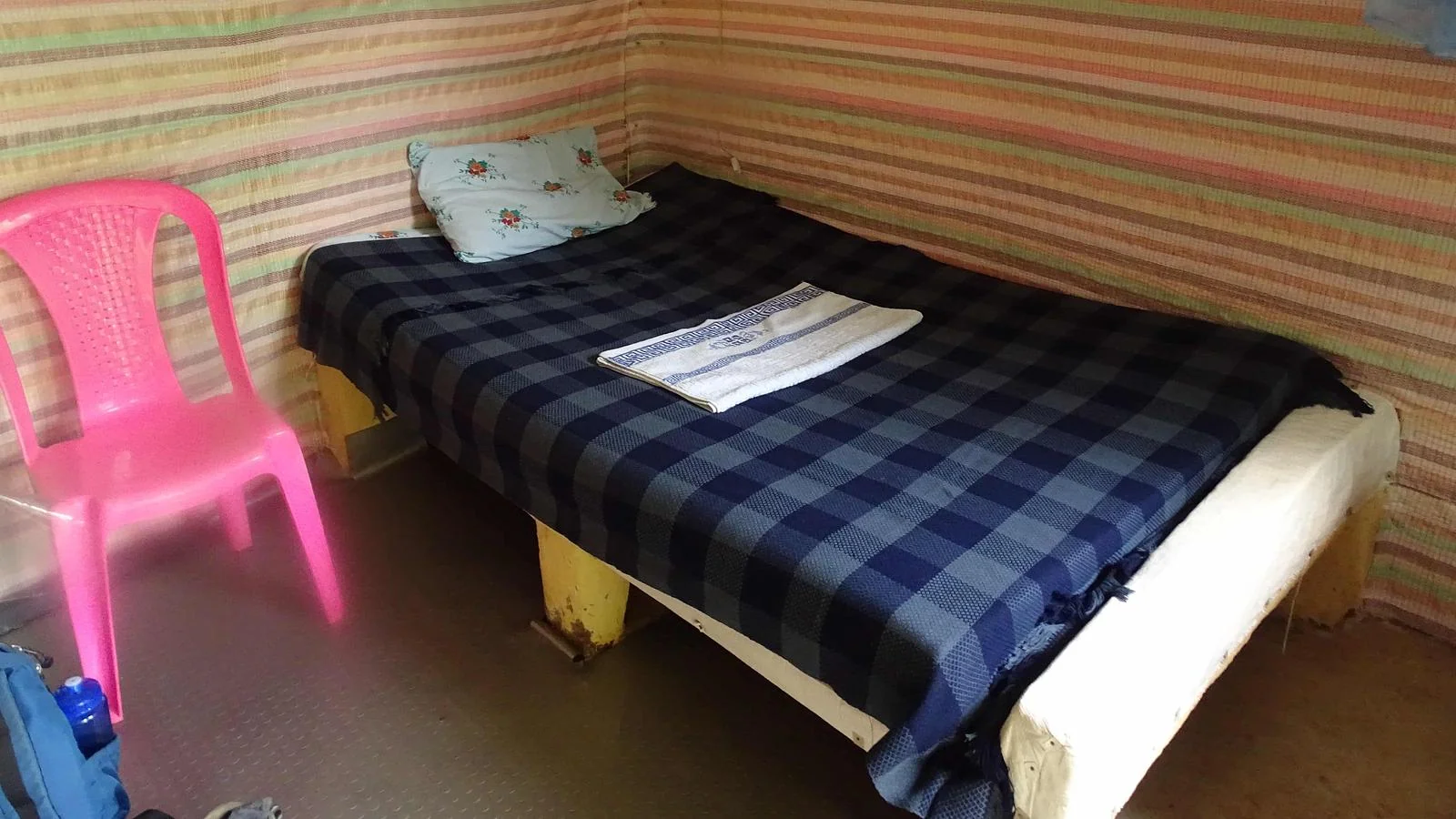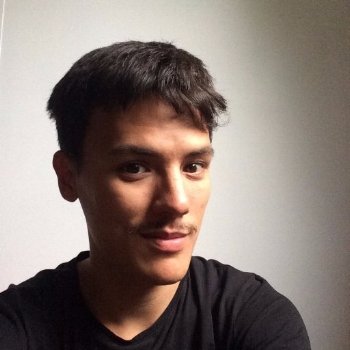It doesn’t take long to observe that the community of Awra Amba is unlike any other place in Ethiopia — or even the rest of the world.
Here in the breathtaking highlands of northern Ethiopia, not far from the fresh waters of Lake Tana, the largest in the east African nation, an important societal experiment has been underway for the last half century.
Across the lush terrain, women guide oxen to plough the fields. Men sit in their humble adobe homes, sometimes tending to babies or spinning cotton. Here, the gender equality of labor is both the law as well as, seemingly, the genuine reality.
What might seem like simple logic, such as the fact that men here are accountable for doing half the housework, is in fact an extremely rare phenomenon globally. A study of 190 economies around the world by the World Bank in March 2024 found that women spend 2.4 more hours a day on unpaid care work than men, much of it on child care. It also found that women earn just $0.77 for every $1 paid to men. “No country provides equal opportunity for women,” concluded the damning report.
Yet Awra Amba, where about 600 residents live together in a picturesque village surrounded by rolling verdant hills, is a vision of a world of equal work.
Every day, Abera Alamu, a male resident of the community, is tasked with a number of responsibilities for his three-year-old daughter Metadal, such as dressing her, washing her face and feeding her breakfast before taking her to school.
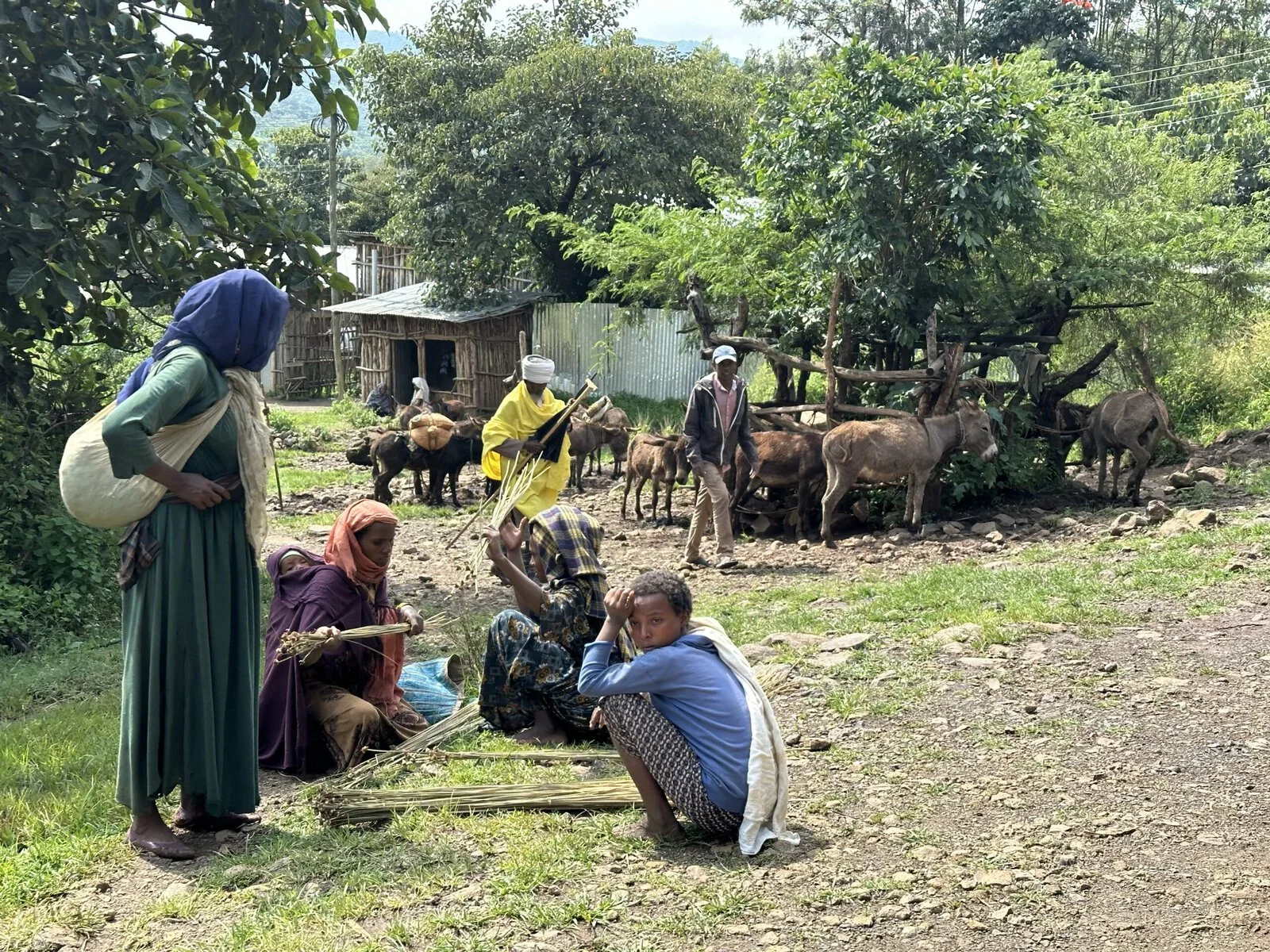
“We know that in other places, fathers don’t help,” says Alamu, sitting cross-legged on the floor of his home. “But I feel so happy because we live harmoniously together to share the workload. This is our vision. We wish that everyone does this.”
Alamu and his wife Atala were both born in Awra Amba, which was set up by a man known as Zumra Nuru — a curious self-taught figure who left home at a young age and traveled much of the country — and a group of local farmers in the 1970s.
Much mythology surrounds Nuru’s childhood, including the community’s claims that he began to conceive and write his life philosophy at the age of four, but what is sure is that he grew up in Ethiopia’s conservative Amhara region. However, the way of life he experienced there made him feel uneasy. Nuru was, for example, sent to work in the fields instead of going to school, and his mother was kept in the house to work while his father made the decisions.
Weighed down by negative news?
Our smart, bright, weekly newsletter is the uplift you’ve been looking for.“My mother would have to work even after my father finished: cooking, collecting firewood, washing his feet,” says Nuru, now 76. “Sometimes he would beat her if she didn’t finish the tasks. Why didn’t he help?”
As he grew up, Nuru found that this husband-wife inequality was standard among families across the region where he grew up. “All women had to suffer, and husbands were treated as superior,” he explains.
Disenchanted, Nuru says that he then left home and spent a time traveling the country before he eventually found a community of farmers who were willing to embrace his ideas, and thus, Awra Amba was born in 1972.
The community is governed by 15 democratically elected committees, which decide actions on everything from housing to education, conflict resolution, sanitation and village security, with elections held every three years. Recently, for example, one committee determined that the community members should go out and collect plastic waste together, since it had become a growing issue.
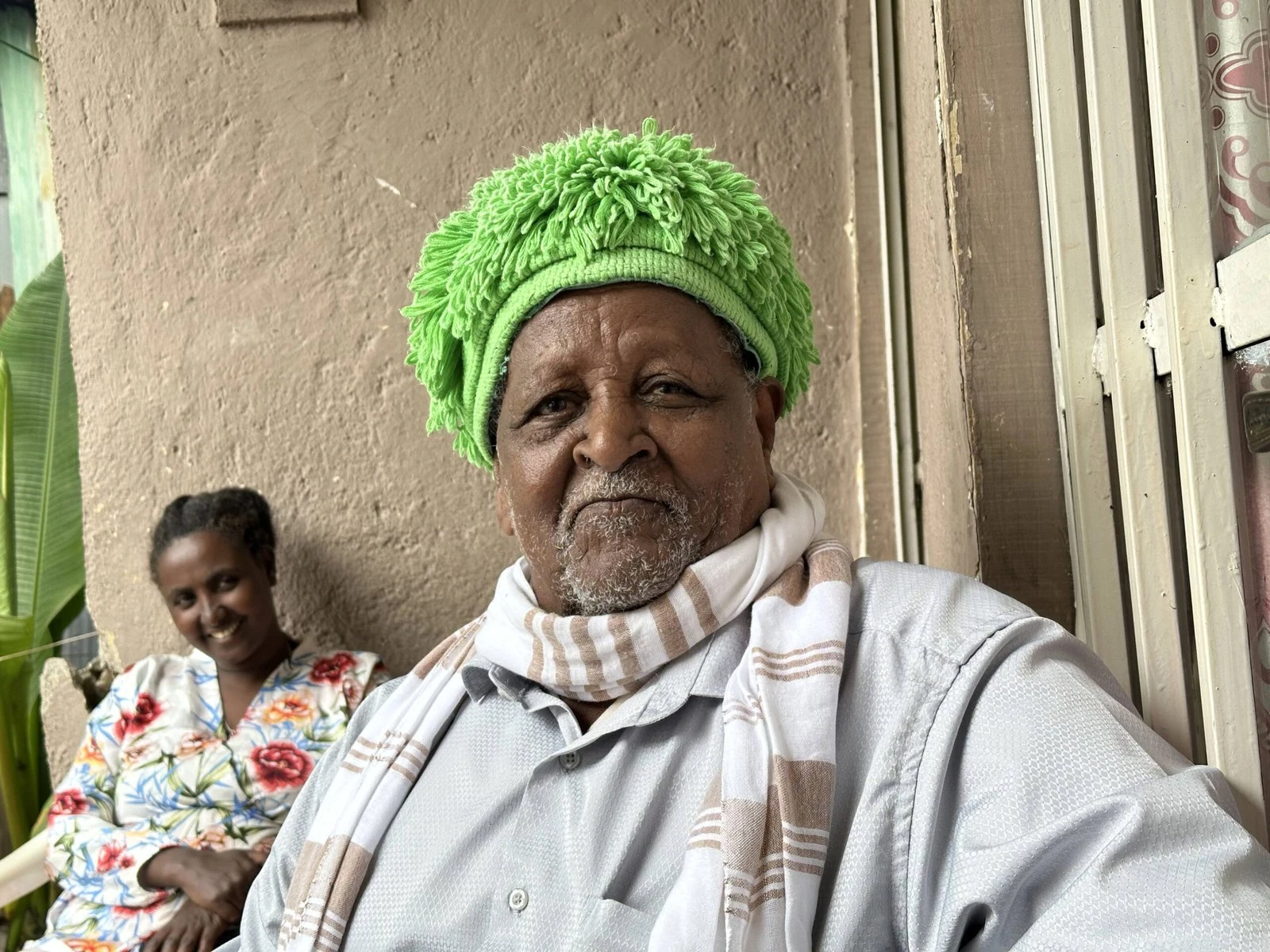
Roughly a third of the community is part of a cooperative in which all earnings — from industries such as fabric weaving and farming, the produce of which is sold in the village or at local markets — are shared equally, while others simply abide by the progressive, non-religious values.
“Especially for women, it’s comfortable here,” says Serkie Bedru, 40, who is divorced. “I participate in whatever.” She weaves, which is typically considered a men’s activity in Ethiopia.
While gender equality of labor is one of the more eye-catching of these values, life in Awra Amba follows five broad tenets: women’s rights, children’s rights, caring for the elderly and vulnerable, treating all humans as “brothers and sisters regardless of their differences,” and avoiding “antisocial behavior” such as lying or stealing.
“My rights are respected here,” says Qewt Alemu, a 77-year-old resident of the home, which was built in 2007. “And I feel more sociable. I was timid before, afraid to speak with others.”
In order to minimize conflict and maximize conviviality, every fortnight neighbors are selected to meet and discuss family issues with a neutral moderator, with a focus on how to solve them. The opinions of children and adults are given equal weight.
Meanwhile, having many children is discouraged because the community believes it will be more difficult for the parents to provide sufficient care to them. In response to the prevalence of forced marriages in Ethiopia, marriage in Awra Amba is only possible with the full consent of the bride and groom, and they must wait until they are 20.
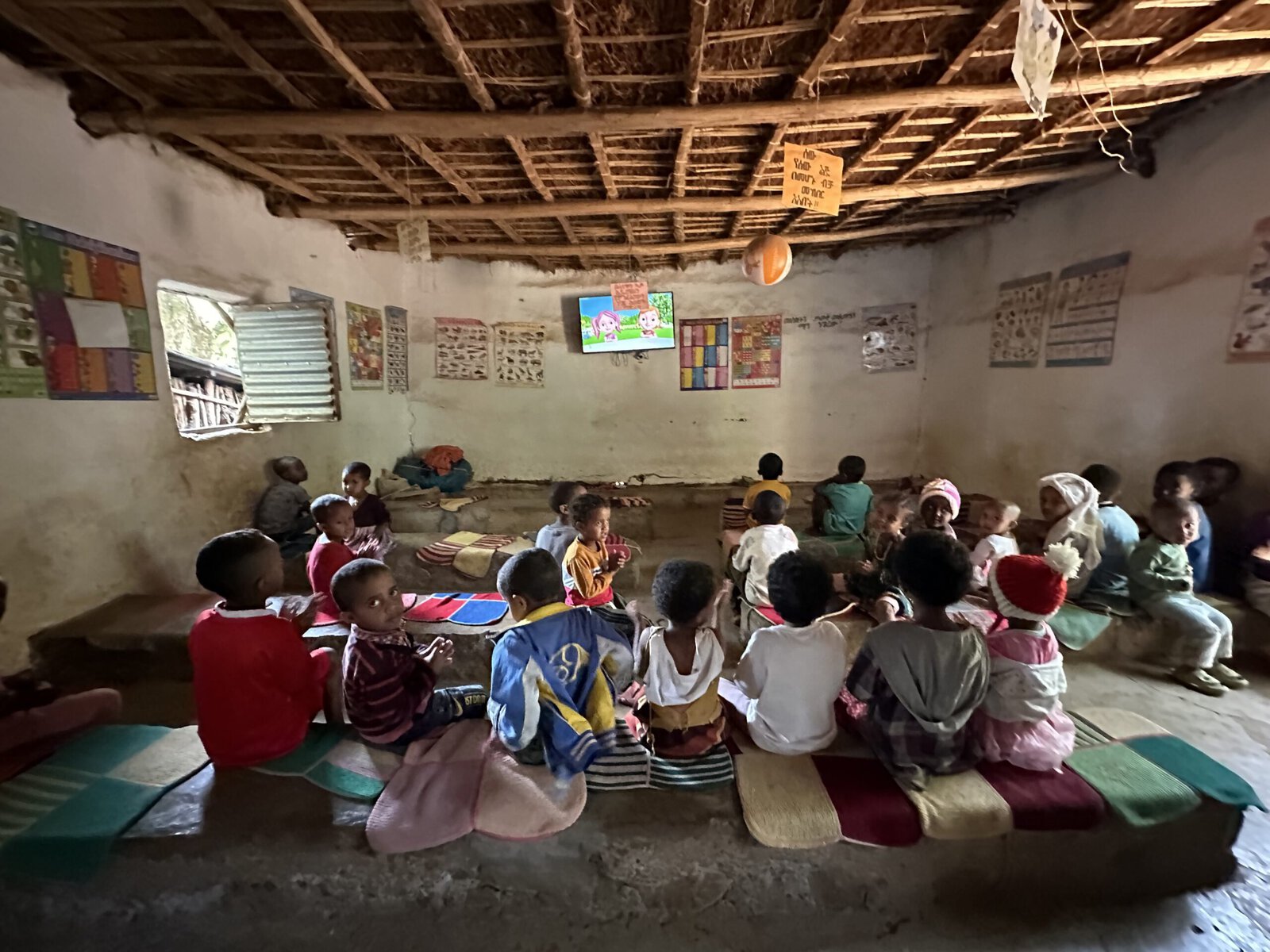
General funds are saved for Lewegen Derash, the community’s own charity, in case someone in the area suffers a disaster such as their house burning down. Education is also heavily promoted, from kindergarten to college — Awra Amba pays for young people to go and study at universities in cities, with the expectation that they will bring their new skills home to the community.
“We don’t know about life after death but we can create paradise on earth,” says Worksew Mohammed, a 25-year-old accountant and guide at Awra Amba who is married but doesn’t have children. “Human beings are our greatest wealth.”
And despite its very informal grassroots approach, this Awra Amba experiment, just over 50 years after it began, has shown notable signs of success: Life expectancy, gender equality and literacy levels in the community, among other metrics, far exceed Ethiopia’s national averages.
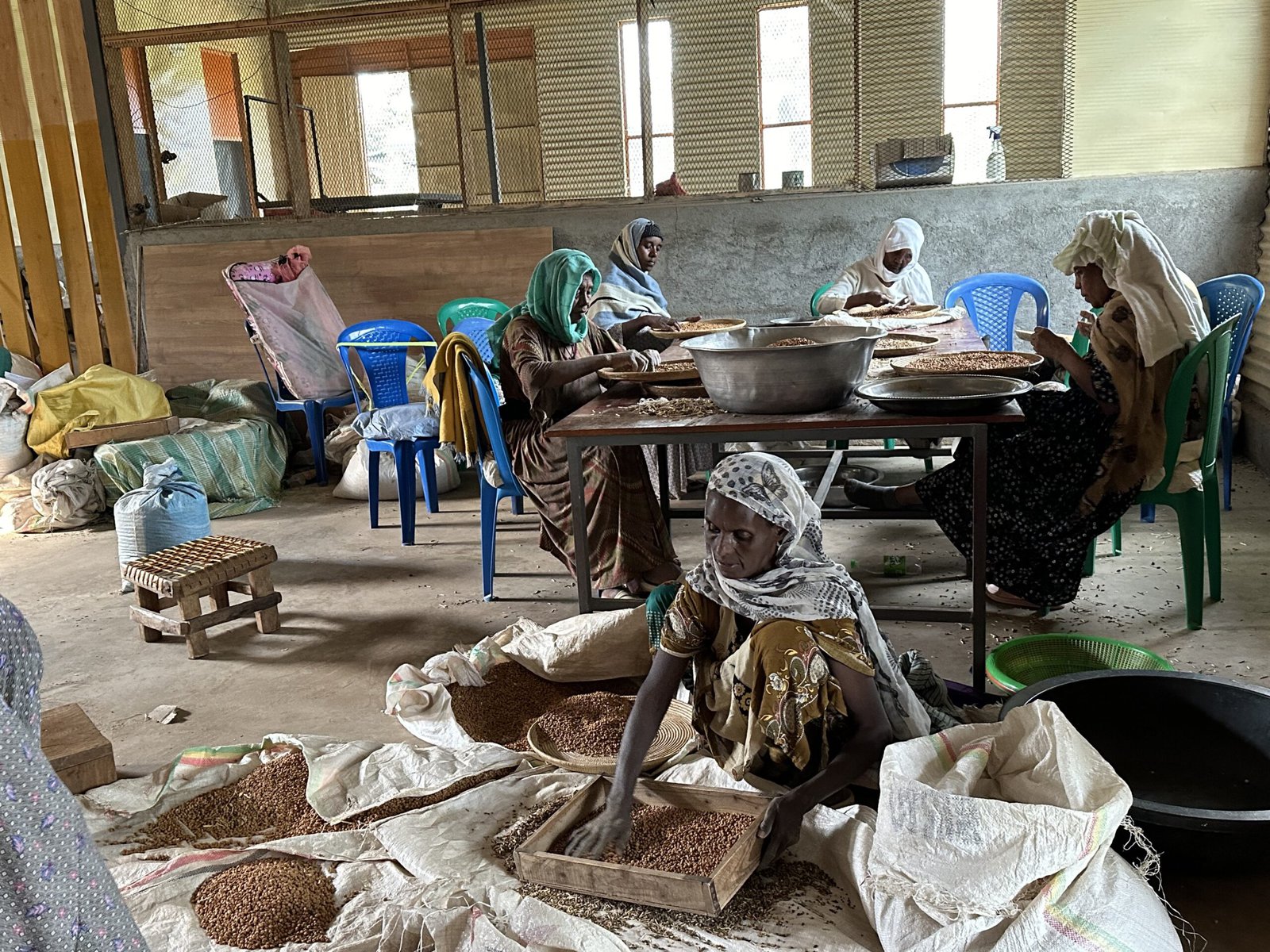
In fact, in a country where the average person earns a little over $2000 per year, the quality of life is remarkable.
“I think it’s a flourishing community in many ways,” says Marit Tolo Østebø, a cultural anthropologist at the University of Florida who published a book in 2021 based on her research at Awra Amba. “The education levels are very good. The gender equality in the community is real.”
Given the unusual nature of the community, which has over the years received some funding from nonprofits and from thousands of tourists who can stay overnight at an on-site guesthouse, there has also been a huge amount of wider research.
For example, according to a literature review of some 30 studies on Awra Amba, girls’ access to university, which was once lower than that of boys, is now at the same level (while overall, its rate of college graduates is six times higher than that of the general population in Ethiopia). A study in 2015 noted that “there is not a substantial difference between the Awra Amba females and males in their gender role perception … sex does not determine the perception of gender roles in Awra Amba community.”
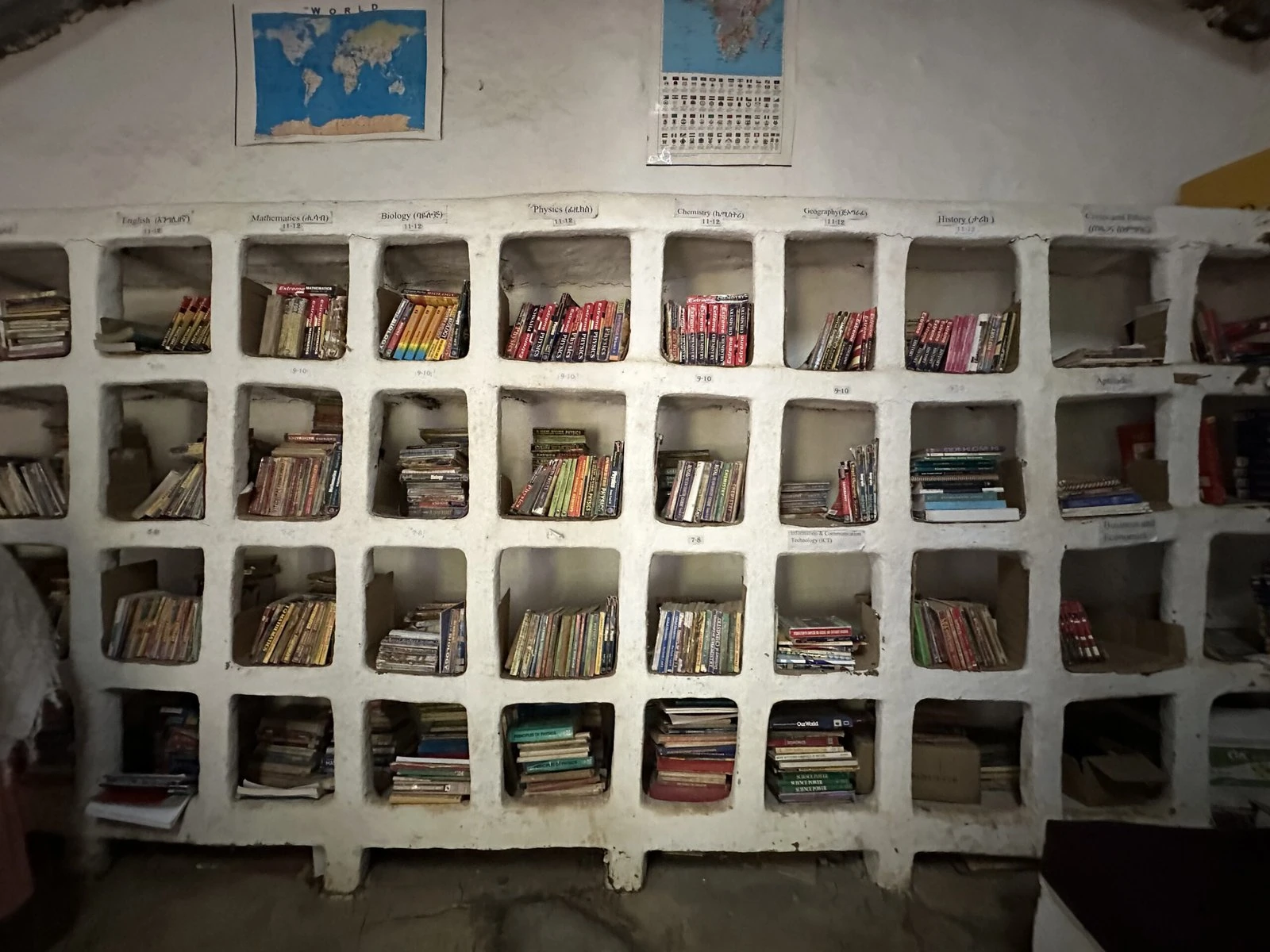
Indeed, officials from the Ethiopian government, Oxfam International, the World Bank and beyond have visited the community to learn lessons from it. In Awra Amba’s on-site museum there’s even a photo of Tedros Adhanom, now director-general of the World Health Organization.
The literature review notes that duplication of such a model in Ethiopia “seems possible,” pointing to the example of Lulista Mariam, a village about 100 miles from Awra Amba that “adopted the principles of Awra Amba.”
Yet Awra Amba is far from a flawless utopia. The pandemic and ongoing conflict in Ethiopia have shaken the community’s economic system, which relied on a considerable amount of income from tourism.
More significantly, it’s difficult to overlook the fact that the voice of Nuru, a hugely influential figure, appears to hold greater sway than others.
The literature review notes that “the reality of power sharing … seems to remain rather autocratic” — and some members of the community have been expelled over the years.
“There is no space for dissent or non-official stories,” adds Østebø, who estimates in her book that more than 20 people have been expelled. “We need to be careful to avoid idealizing these places. All models have limits; they simplify.”
Nuru, for his part, denies that there had been forced expulsions from the community, without going into detail. “When you are a member of the community, you must respect the rules,” he says. “Nobody will say you should leave but you push yourself away.”
Nonetheless, despite these issues common to such utopian projects around the world — which are often helmed by charismatic leaders — Awra Amba continues to build on its unusual example of togetherness, equality and mutual aid in an age of division.
Last year, it even started a new microfinancing project that provides interest-free loans not only to community members but also to anyone from around the region for needs such as home construction and buying equipment and fertilizers for farms.
“We want to help others — and that will help us all,” says the guide Worksew.


